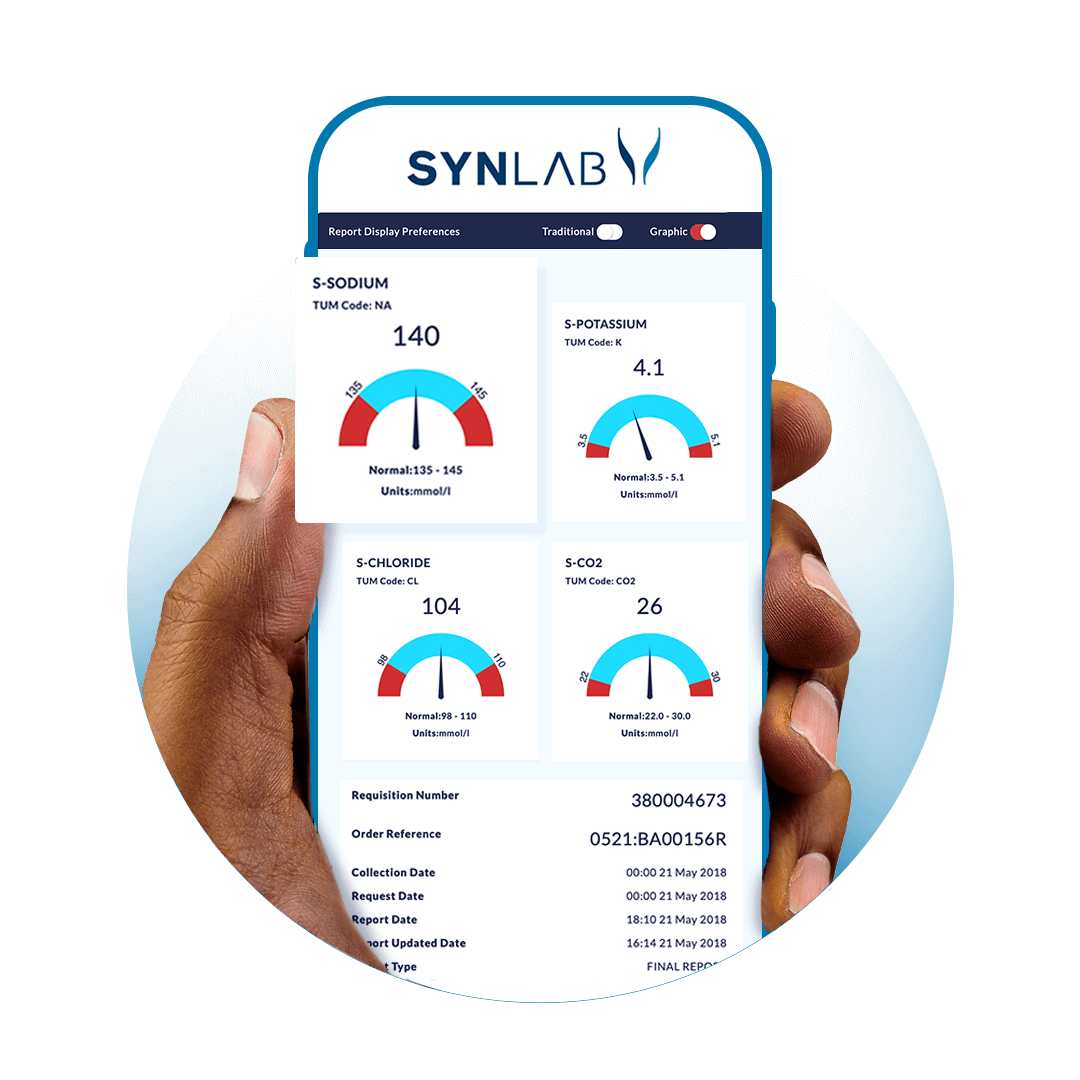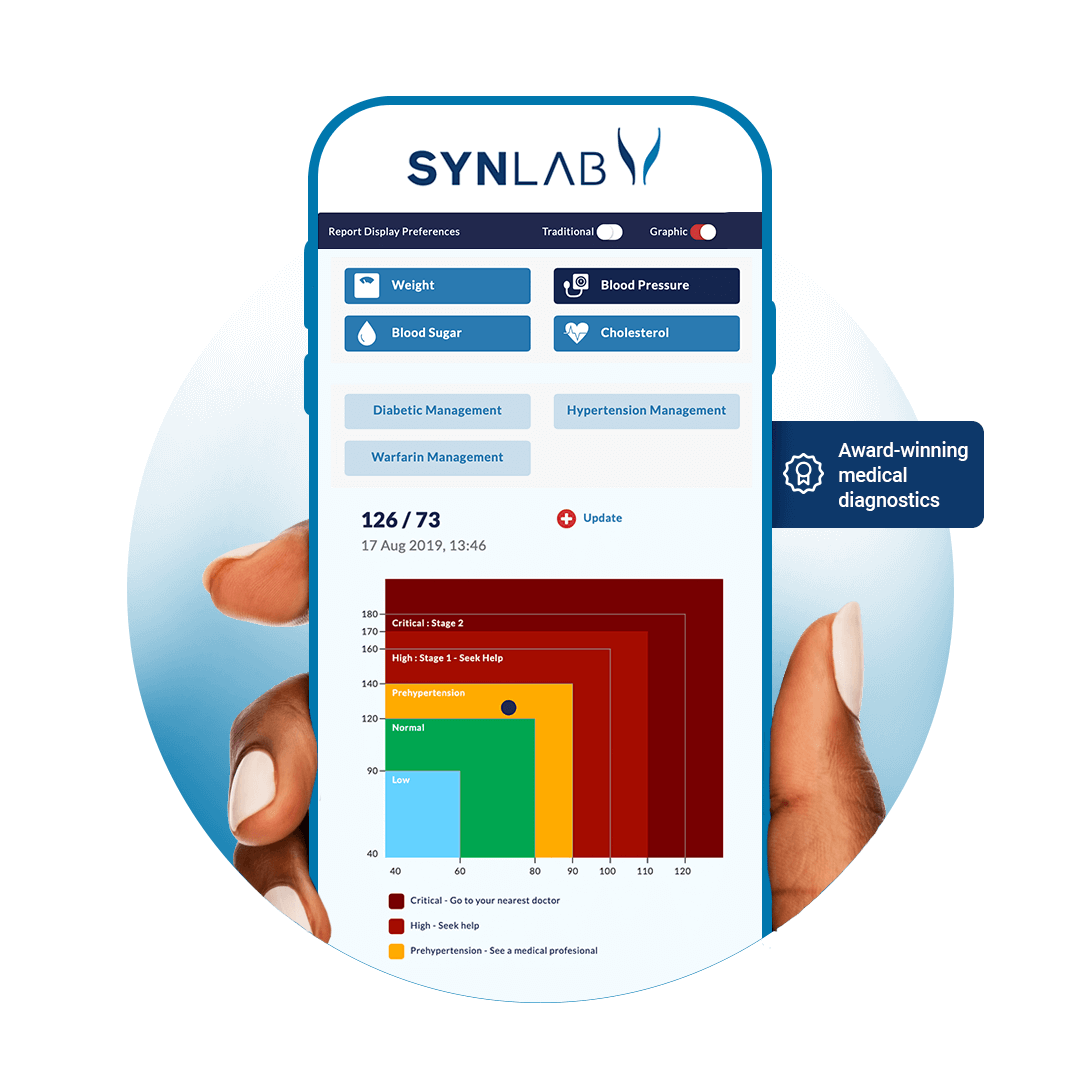Depression/Burnout
Depression is a debilitating illness that can influence your thoughts, feelings and behaviours. Early identification can save your life. Get tested. Take control of your health.
Confidential
Quick turnaround
Reliable accuracy
No featured products
How it works

Order online
Order your test online, select, and pay for your preferred panel.

Collect your sample
Choose to have our medical team come in for home sample collection or visit a Synlab centre near you for your sample collection.

Review accurate results
Accurate and confidential results are available on your secure online Pathprovider account. You will get notified as soon as your results are available.

Get medical support
If you have any queries, please contact our 24-hour customer support centre at +234 700 7284 2273.
STATISTICS
1 in 4
Nigerians suffer from mental illness
15M
Nigerians die from suicide every year
#1
Nigeria is ranked as the most depressed country in the African continent
Depression is more than being sad or feeling grief after a loss; it is a medical condition.
Day after day, depression affects your thoughts, feelings, physical health and behaviours. Untreated, symptoms can last for weeks, months, or years, and if inadequately treated, depression can lead to significant impairment, other health-related issues, and in rare cases, suicide.
Burnout is a state of emotional, physical, and mental exhaustion caused by prolonged exposure to excessive stress. Burnout is classified as an “occupational phenomenon,” meaning it results from chronic workplace stress.
Symptoms of depression include:
- Feelings of sadness
- Preoccupation with past failures or inadequacies
- Loss of self-esteem
- Feelings of anxiety
- Feelings of uselessness, hopelessness, excessive guilt
- Slowed thinking, forgetfulness, difficulty concentrating, difficulty in making decisions
- Loss of interest in work, hobbies, people
- Lethargy and fatigue
- Agitation or restlessness
- Changes in weight and appetite
- Oversleeping or insomnia
- Decreased sexual drive
- Thoughts of death, dying or suicide
Symptoms of burnout include:
- Emotional, physical, or mental exhaustion
- Anxiety
- insomnia
- Trouble with memory
- Poor job performance
- Headaches
- Fatigue
- Feelings of hopelessness
Common types of depression
- Major depression
Major depression is a state where a dark mood is all-consuming, and one loses interest in activities, even ones that are usually pleasurable. Thoughts of death or suicide may occur. It is usually treated with psychotherapy and medication.
- Persistent depressive disorder
This type of depression refers to a low mood that has lasted for at least two years but may not reach the intensity of major depression. Many people with this type of depression type can function daily but feel low or joyless much of the time.
- Bipolar disorder
People with bipolar disorder have episodes of depression. But they also go through periods of unusually high energy or activity. Manic symptoms look like the opposite of depression symptoms. Being manic can feel great, but it doesn’t last long, can lead to self-destructive behaviour, and is usually followed by a period of depression.
- Seasonal affective disorder (SAD)
This type of depression emerges as days get shorter in the fall and winter. The mood change may result from alterations in the body’s natural daily rhythms, in the eyes’ sensitivity to light, or in how chemical messengers function.
- Pre menstrual dysphoric disorder (PMDD)
This type of depression is a severe form of premenstrual syndrome or PMS. Symptoms of PMDD usually begin shortly after ovulation and end once menstruation starts.
Causes of Depression
Depression is thought to be caused by a complex combination of genetic, biological, psychological, and environmental factors. The condition usually develops between the ages of 15 and 30 and is much more common in women than in men.
Depression Risk factors
Gender (Women are more at risk of depression than men)
Childhood trauma
Family history of mental illness

Experiencing stressful life events
Little or no close personal relationships
Motherhood (postpartum depression)

Serious illness

Alcohol or drugs abuse
Causes of burnout
Burnout results from excessive and prolonged physical, emotional and behavioural work-related stress. Burnout leads to professional dissatisfaction and can affect other areas of life as well, such as personal relationships, overall contentment and health.
Burnout Risk factors

Heavy workload
When you have an increased workload, you may feel stressed and negatively impact your professional growth and development, which in turn may lead to burnout.

Lack of autonomy
Feeling like you lack autonomy, access to resources, and a say in decisions that impact your professional life can take a toll on your well-being.

Lack of reward/recognition
If the extrinsic and intrinsic rewards for your job don’t match the amount of effort and time you put into them, then you’re likely to feel like the investment is not worth the effort.
Poor treatment
If you believe you are treated unfairly, it may trigger feelings of burnout.

Value misalignment
If you highly value something your company does not (or vice versa), your motivation to work hard and persevere can significantly drop.

Poor work-life balance
Lack of work-life balance can lead to burnout and other serious health conditions such as high blood pressure, heart conditions, and muscular pains.
Frequently Asked Questions
If you are still unsure about this test, here are some questions that we usually get asked.
Still need answers?
Can depression affect physical health?
Mental health and physical health are closely interrelated. Depression is linked with changes in the brain. Additionally, depression can increase the risk for medical conditions such as cardiovascular disease, stroke, Type 2 diabetes, Alzheimer’s disease, osteoporosis, and migraine. Chronic depression can also increase the risk of obesity.
Is burnout recognised as a mental illness?
Burnout is not considered a mental illness, but it is recognised as a mental health issue.Burnout is not considered a mental illness, but it is recognised as a mental health issue.
Can untreated burnout lead to depression?
Studies have shown that constant stress and burnout can lead to depression and anxiety. Burnout can also hurt your relationships both at work and in your personal life. It is helpful to recognise when you are in the early stages of burnout so you can take action to avoid it becoming a more serious issue.
Benefits
When you get your test done with SYNLAB, you have access to our benefits.
Customer-centric reporting
PathProvider gives you direct access to all of your test results and reports across all your devices without having to leave your home.
Benefits of being a PathProvider registered user
- Your profile is a secure personal space
- Access your results any time, any day, all year round
- Results can be checked on any smartphone, computer, or tablet
- All your previous results are archived on your profile
- Set your notification preferences when results are ready. Choose email or SMS.
- Not a doctor? Switch to the popular ‘graphic view’ and get to understand your results.
- You can share or print your results directly from your profile.


Choose home collection.
Get complete convenience
Get your results as they become available online.
You can choose to get your entire family tested in the comfort of your own home. Choose a day and a time that is convenient for you, and we’ll send one of our trained professionals to your door.
No more sitting in traffic. Now you can manage your health in the comfort of your own home.
Total confidence.
Award-winning medical diagnostics
Accuracy of results, reliability, trust, and quick turnaround time.
We are audited by an external body which ensures that we implement the highest ethical standards and international best practices.
SYNLAB was awarded the 'Private Laboratory Service Provider of the Year' in Nigeria award by the Nigeria Health Excellence Awards (NHEA).

Select the test that’s right for you
Our most advanced wellness panel. It gives a detailed assessment of liver function and structure, kidney structure and function, diabetes mellitus, thyroid function, bone health, blood disease, risk of heart and blood vessel disease, Immunity, urinary tract health, and illnesses associated with chronic inflammation.
It also checks for cervical and colon cancer.
Our most advanced wellness panel. It gives a detailed assessment of liver function and structure, kidney structure and function, diabetes mellitus, thyroid function, bone health, blood disease, risk of heart and blood vessel disease, immunity, urinary tract health, and illnesses associated with chronic inflammation.
It also checks for colon cancer and the risk of prostate cancer.
Analysis of 90 genetic variants present in 65 genes and 17 biochemical parameters
This test uses your genetic and biochemical profile to help to identify your unique nutritional needs for optimal health and disease prevention.
A once-in-a-lifetime comprehensive genetic test to determine life-long individual drug compatibility.